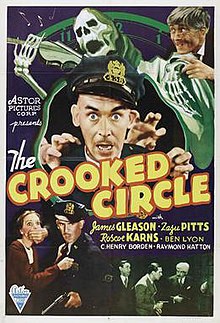
Walter Andrew Brennan was an American actor and singer. He won the Academy Award for Best Supporting Actor for Come and Get It (1936), Kentucky (1938) and The Westerner (1940), making him one of only six actors to win three Academy Awards, and the only male or female actor to win three awards in the supporting actor category. Brennan was also nominated for his performance in Sergeant York (1941). Other noteworthy performances were in To Have and Have Not (1944), My Darling Clementine (1946), Red River (1948) and Rio Bravo (1959). On television, he starred in the sitcom The Real McCoys (1957-1963).
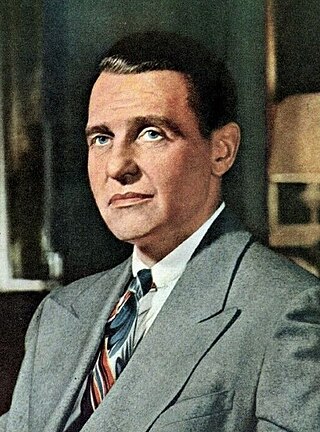
Ralph Rexford Bellamy was an American actor whose career spanned 65 years on stage, film, and television. During his career, he played leading roles as well as supporting roles, garnering acclaim and awards, including a Tony Award for Best Actor in a Play for Sunrise at Campobello as well as Academy Award for Best Supporting Actor nomination for The Awful Truth (1937).

Charles Strouse is an American composer and lyricist best known for writing the music to such Broadway musicals as Bye Bye Birdie, Applause, and Annie.

George Francis "Gabby" Hayes was an American actor. He began as something of a leading man and a character player, but he was best known for his numerous appearances in B-Western film series as the bewhiskered, cantankerous, but ever-loyal and brave comic sidekick of the cowboy stars William Boyd, Roy Rogers and John Wayne.
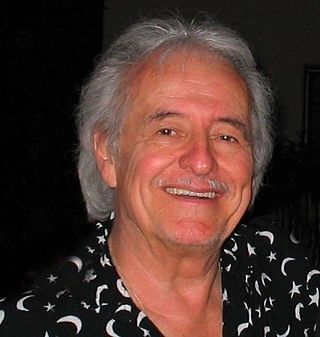
Henry Darrow was an American character actor of stage and film known for his role as Manolito "Mano" Montoya on the 1960s television series The High Chaparral. In film, Darrow played the corrupt and vengeful Trooper Hancock in The Hitcher. During the 1970s and 1980s, he was seen in numerous guest starring television roles. Darrow replaced Efrem Zimbalist Jr. as Zorro's father Don Alejandro de la Vega in the 1990s television series Zorro.

Helen Chandler was an American film and theatre actress, best known for playing Mina Seward in the 1931 horror film Dracula.
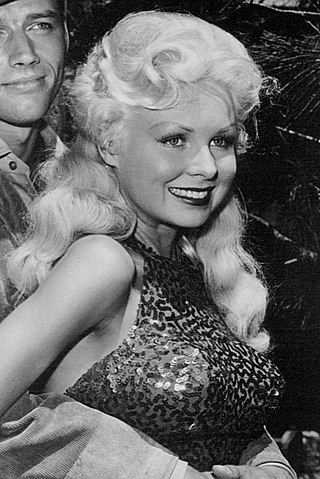
Joi Lansing was an American model, film and television actress, and nightclub singer. She was noted for her pin-up photos and roles in B-movies, as well as a prominent role in the famous opening "tracking shot" in Orson Welles' 1958 crime drama Touch of Evil.

Edgar Livingston Kennedy was an American comedic character actor who appeared in at least 500 films during the silent and sound eras. Professionally, he was known as "Slow Burn", owing to his ability to portray characters whose anger slowly rose in frustrating situations.

Harry Rudolph von Zell was an American announcer of radio programs, and an actor in films and television shows. He is best remembered for his work on The George Burns and Gracie Allen Show.
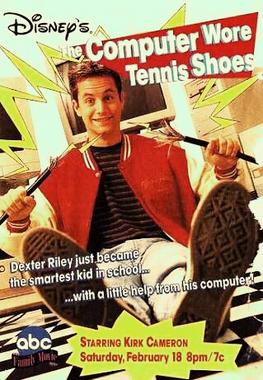
The Computer Wore Tennis Shoes is a 1995 American made-for-television science fiction comedy film directed by Peyton Reed and written by Joseph L. McEveety and Ryan Rowe. The film is a remake of the 1969 film of the same name. It premiered on ABC as an ABC Family Movie on February 18, 1995. It is the second in a series of four remakes of Disney live-action films produced for broadcast on the network during the 1994–95 television season, the other three being The Shaggy Dog, Escape to Witch Mountain, and Freaky Friday.

James William Flavin Jr. was an American character actor whose stage, film, and television career lasted some forty years.

G. Raymond Nye was an American film actor whose career began in silent era and lasted until the 1950s. He appeared in more than 110 films between 1912 and 1952.

Robert Donald Walker was an American film actor. He appeared in more than 200 films between 1913 and 1953. He was born in Bethlehem, Pennsylvania and died in Los Angeles.

Brittany Leanna Robertson-Floyd, known professionally as Britt Robertson, is an American actress. She has appeared in the films The First Time (2012), Tomorrowland (2015), The Space Between Us (2017) and I Still Believe (2020).

C. Henry Gordon was an American stage and film actor.
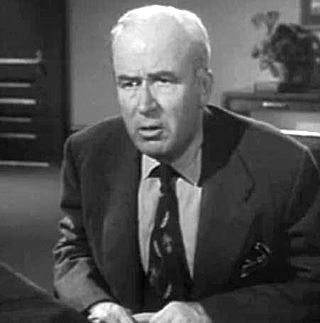
Harry Shannon was an American character actor. He often appeared in Western films.
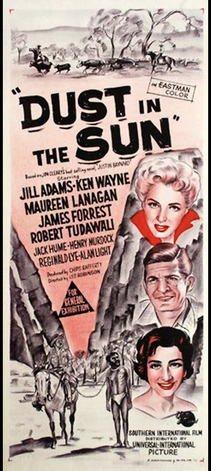
Dust in the Sun is a 1958 Eastmancolor Australian mystery film adapted from the 1955 novel Justin Bayard by Jon Cleary and produced by the team of Lee Robinson and Chips Rafferty. The film stars British actress Jill Adams, Ken Wayne and an Indigenous Australian actor Robert Tudawali as Emu Foot.

Harvey Stephens was an American actor, known initially for his performances in Broadway productions, and thereafter for his work in film and on television. He was most active in film beginning in the 1930s and through the mid-1940s. Beginning in the mid-1950s, he transitioned to television and enjoyed success there through the 1960s.

The Great American Beauty Contest is a 1973 American satirical comedy–drama television film, starring JoAnna Cameron and featuring Eleanor Parker, Robert Cummings, Louis Jourdan and Farrah Fawcett in an early film appearance.
Crowhaven Farm is a 1970 American made-for-television supernatural horror film and folk horror film directed by Walter Grauman and starring Hope Lange, Paul Burke and John Carradine. It originally aired as the ABC Movie of the Week on November 24, 1970.
